On August 3…
“I’ve been accused of bad taste, and I’ll go down to my grave accused of it and always by the same people, the ones who eat in restaurants that reserve the right to refuse service to anyone.”
~Lenny Bruce

1492 – From the Spanish port of Palos, Italian explorer Christopher Columbus set sail in command of three ships – the Santa Maria, the Pinta, and the Nina – on a journey to find a western sea route to China, India, and the fabled gold and spice islands of Asia.
On October 12, the expedition sighted land, probably Watling Island in the Bahamas, and went ashore the same day, claiming it for Spain. Later that month, Columbus sighted Cuba, which he thought was mainland China, and in December the expedition landed on Hispaniola, which Columbus thought might be Japan. He established a small colony there with 39 of his men.
The explorer returned to Spain with gold, spices, and “Indian” captives in March 1493 and was received with the highest honors by the Spanish court. He was the first European to explore the Americas since the Vikings set up colonies in Greenland and Newfoundland in the 10th century.
Postscript: Since the late 20th century, historians have criticized Columbus for initiating colonization and for abuse of natives. Among reasons for this criticism is the poor treatment of the native Taíno people of Hispaniola, whose population declined rapidly after contact with the Spanish.
Over sixty monuments, including statues and memorials, dedicated to Columbus have been removed in the U.S., and Columbus Day, with its traditional date of October 12, has been replaced in many states by Indigenous Peoples’ Day to honor Native American peoples and commemorates their histories and cultures.
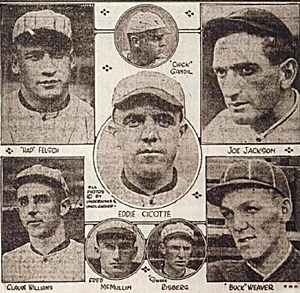
1921 – MLB Commissioner Kenesaw Mountain Landis handed out lifetime bans to eight Chicago White Sox players accused of throwing the 1919 World Series against the Cincinnati Reds in exchange for money from a gambling syndicate.
Despite acquittals in a public trial, Judge Landis was quick to quash any prospect that he might reinstate the implicated players. On August 3, 1921, the day after the players were acquitted, the Commissioner issued his own verdict:
“Regardless of the verdict of juries, no player who throws a ballgame, no player that undertakes or promises to throw a ballgame, no player that sits in conference with a bunch of crooked players and gamblers where the ways and means of throwing a game are discussed and does not promptly tell his club about it, will ever play professional baseball.”
The punishment was eventually defined by the Baseball Hall of Fame to include banishment from consideration for the Hall. Despite requests for reinstatement in the decades that followed (particularly in the case of Shoeless Joe Jackson), the ban remains.
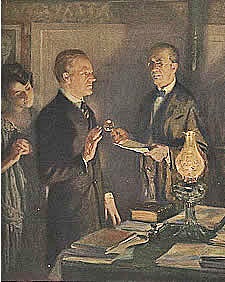
1923 – Calvin Coolidge took the oath of office and became the 30th President of the United States.
On August 2, President Warren Harding had died unexpectedly from a heart attack in San Francisco while on a speaking tour of the western United States. Coolidge was in Plymouth Notch, Vermont visiting his family home, which had neither electricity nor a telephone, when he received word by messenger of Harding’s death.
The vice president dressed, said a prayer, and came downstairs to greet the reporters who had assembled. His father, a notary public and justice of the peace, administered the oath of office in the family’s parlor by the light of a kerosene lamp at 2:47 a.m.
Coolidge returned to Washington the next day, and was sworn in again by Justice Adolph A. Hoehling Jr. of the Supreme Court of the District of Columbia to forestall any questions about the authority of a state official to administer a federal oath.
The second oath-taking remained a secret until it was revealed in 1932.
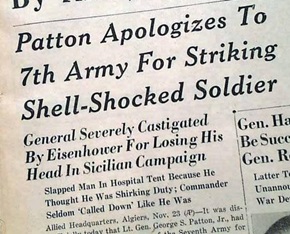
1943 – Lieutenant General George S. Patton slapped and verbally abused Private Charles H. Kuhl at an evacuation hospital in Nicosia, Italy after Kuhl had been found to suffer from “battle fatigue”.
On August 10, Patton slapped Private Paul G. Bennett under similar circumstances. The Bennett incident was particularly troubling. After slapping Bennett a second time, Patton then threatened him.
“You’re going back to the front lines and you may get shot and killed, but you’re going to fight. If you don’t, I’ll stand you up against a wall and have a firing squad kill you on purpose. In fact, I ought to shoot you myself, you goddamned whimpering coward.”
Upon saying this, Patton pulled out his pistol threateningly, prompting the hospital’s commander, Colonel Donald E. Currier, to physically separate the two. Patton left the tent, yelling to medical officers to send Bennett back to the front lines.
Word of the incidents eventually reached Patton’s superior, General Dwight D. Eisenhower, who privately reprimanded Patton and insisted he apologize.
Patton apologized to both soldiers individually, as well as to doctors who witnessed the incidents, and later to all of the soldiers under his command in several speeches.
In Case You’re Wondering… Kuhl, who turned out to be seriously ill with malaria and dysentery, survived the war and died of a heart attack in 1971.
Bennett continued to serve in the Army and also fought in the Korean War. He ended up as a Sergeant First Class and died in 1973.
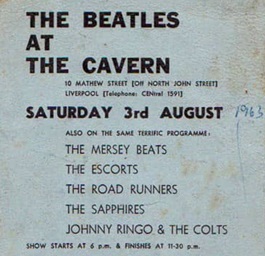
1963 – The Beatles made their final appearance at the Cavern Club in Liverpool.
Their first appearance on February 9, 1961 had earned them a grand total of $14. For their final performance on this date – believed to be their 292nd appearance at the club – they earned $840.

1966 – Comedian Lenny Bruce was found dead in the bathroom of his Hollywood Hills home in his home in Los Angeles. The official cause of death was “acute morphine poisoning caused by an overdose.” He was 40 years old.
Bruce got his first big break in the fall of 1948 on Arthur Godfrey’s Talent Scouts a notably wholesome venue.
As he gained popularity in New York nightclubs, his brand of comedy shifted from impersonations to free-wheeling monologues satirizing religion and politics.
His humor grew dark and edgy, and his career was marked by drug arrests and charges of obscene performances in Chicago, San Francisco and Los Angeles.
His only conviction came for a 1964 performance at the Cafe au Go Go in Greenwich Village. The New York conviction on the misdemeanor obscenity charge made it almost impossible for him to get work.
An American counterculture icon from the 1960s, Lenny Bruce’s obscenity-laced social satire paved the way for stand-up comedians ranging from George Carlin and Richard Pryor to Robin Williams.

1981 – 13,000 Air Traffic Controllers – represented by Professional Air Traffic Controllers Organization – went on strike after negotiations with the federal government to raise their pay and shorten their workweek proved fruitless.
The same day, President Ronald Reagan called the strike illegal and threatened to fire any controller who had not returned to work within 48 hours.
Postscript: On August 5, following the workers’ refusal to return to work, Reagan kept his word, firing the 11,345 striking air traffic controllers who had ignored the order, and banning them from federal service for life.
Some former striking controllers were allowed to reapply after 1986 and were rehired. The civil service ban on the remaining strike participants was lifted by President Bill Clinton on August 12, 1993.
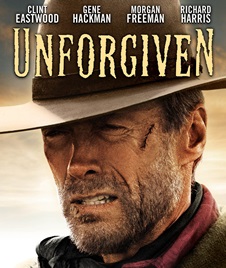
1992 – Unforgiven premiered at the Mann Bruin Theatre in Los Angeles.
The Western – which starred Clint Eastwood, Gene Hackman, Morgan Freeman and Richard Harris – won four Academy Awards: Best Picture, Best Director (Eastwood), Best Supporting Actor (Hackman), and Best Film Editing (Joel Cox).
Filmed on a budget of $14 million, the film earned over $160 million at the box office.
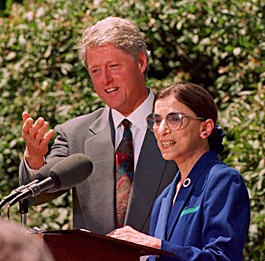
1993 – The U.S. Senate voted 96-to-three to confirm Supreme Court nominee Ruth Bader Ginsburg.
She had been nominated as an Associate Justice of the Supreme Court by President Bill Clinton. The American Bar Association’s Standing Committee on the Federal Judiciary rated Ginsburg as “well qualified,” its highest possible rating for a prospective justice.
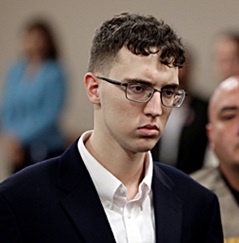
2019 – Twenty-three people were killed and another twenty-three injured when an anti-immigrant gunman armed with a WASR-10 rifle – a semi-automatic civilian version of the AK-47 – opened fire just before 10:40 a.m. at an El Paso Walmart Supercenter.
The shooting has been described as the deadliest attack on Latinos in modern American history.
Many of the more than a thousand shoppers and 100 employees who had been inside the store fled, while others tried to hide from the gunman or help others. Nearby stores and restaurants in the adjacent shopping center went into lockdown.
Patrick Crusius, a 21-year-old from Allen, Texas, was arrested shortly after the shooting and charged with 90 federal charges: 23 counts of committing a hate crime resulting in death, 22 counts of use of a firearm to commit murder, 22 counts of a hate crime involving an attempt to kill and 22 counts of use of a firearm during a crime.
Minutes before the mass shooting, Crusius posted a document he wrote titled, “The Inconvenient Truth,” which stated that he was targeting Hispanics in the shooting.
On July 14, 2020, the court accepted a motion by the defense team in which they cited mitigating factors, citing Crusius’ alleged lifelong neurological and mental disabilities, which they described as “severe.” The defense added that he was treated with antipsychotic medication and that he was in a “psychotic state” when arrested.
No trial date has been set.
Compiled by Ray Lemire ©2005-2020 RayLemire.com / Streamingoldies.com. All Rights Reserved.